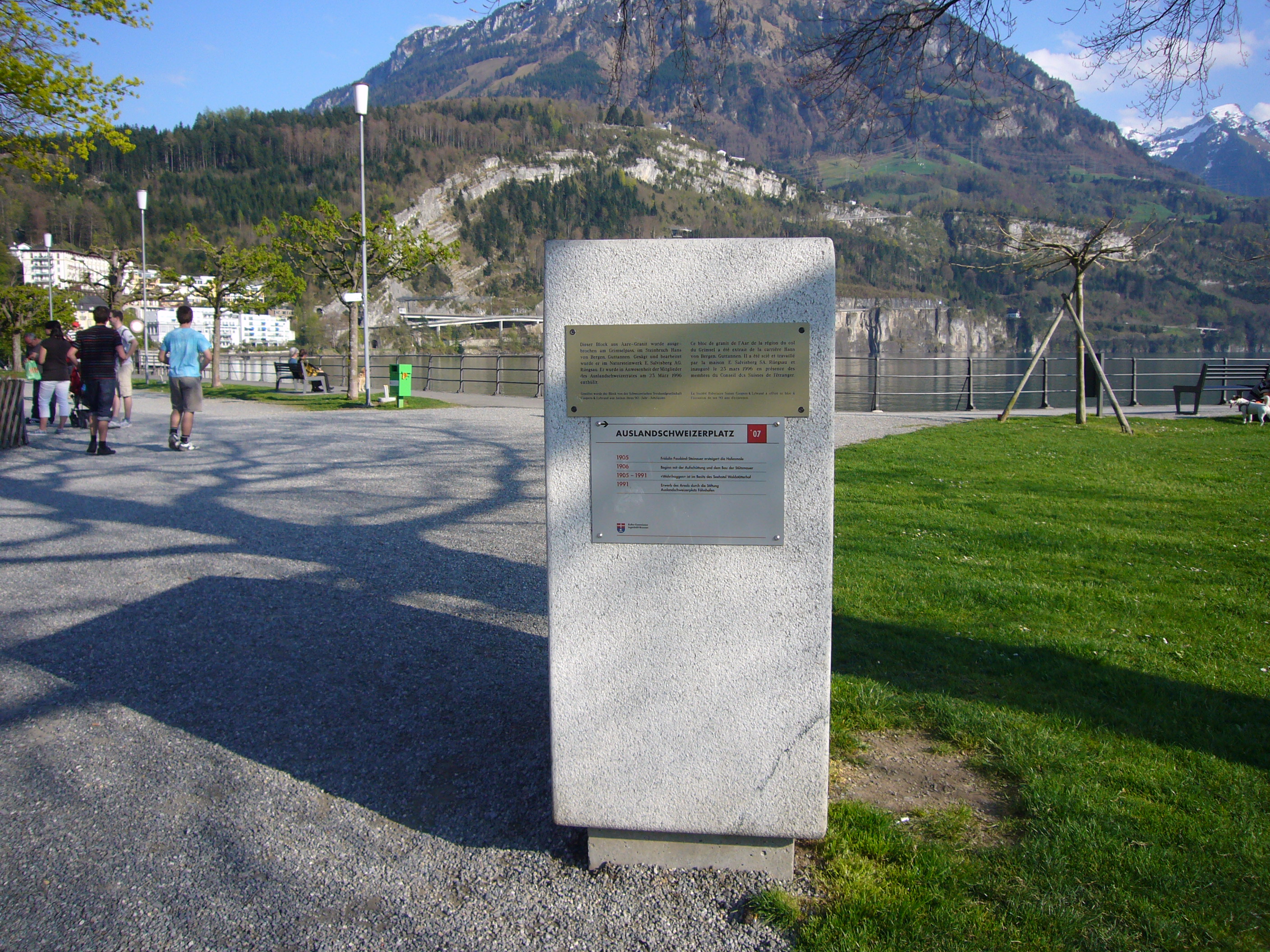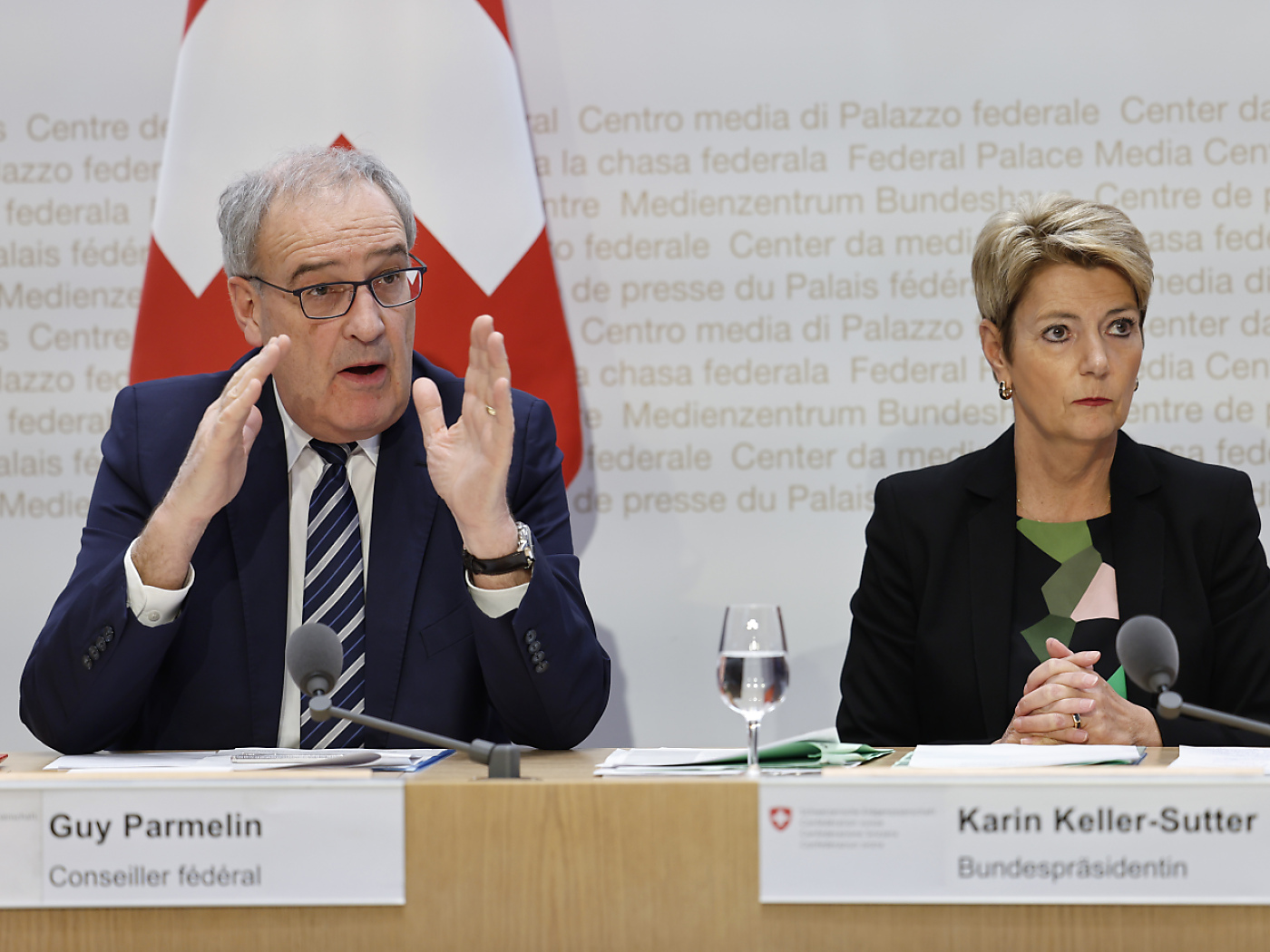Manifesto promotes interests of Swiss abroad

The Swiss expatriate community has issued a political manifesto putting its cards on the table for the parliamentary elections on October 23.
The response this initiative gets from the politicians at home is likely to influence the choices of over half a million expats with the right to take part in the ballot.
Clearly determined to occupy a prominent place in federal politics, the Swiss abroad community is addressing itself directly to parties and candidates running for parliament. They will all receive the 2011 election manifesto of the Organisation of Swiss Abroad (OSA).
The Swiss abroad want to see new legislation on expatriates, simpler rules governing the exercise of political rights outside the national territory, promotion of mobility of Swiss citizens and adequate consular assistance.
Also part of the manifesto are demands for improved communication with the expatriate community, increased weight given to the Council of Swiss Abroad as representative assembly, and the strengthening and development of Switzerland’s international presence and involvement.
These aspirations are now planks in the political platform of the Swiss electorate abroad. It is an electorate scattered across the planet, but “with its heart in Switzerland,” as Giuseppe Broggini, a retired architect from Ticino who has lived for 40 years in London, told swissinfo.ch.
While emotional reasons may prompt expatriates to maintain the link with political life in Switzerland, a realisation of their potential strength has now united them in a common strategy to achieve their objectives.
Legal framework
The record of the current parliament is mixed in the view of the expats, says OSA director Rudolf Wyder. There has been progress on electronic voting, but it is still far from being universally implemented. The expatriate community wants things speeded up, he says.
For the director of the OSA, one very important step has been the government’s recognition of the need for a coherent policy on the Swiss abroad.
“In the next legislative period, things need to be made concrete,” insists Wyder. For this reason, the first of the seven goals in the manifesto is the creation of a legal framework for such a policy.
Throughout the expat communities, the feeling has been growing that they are neglected by the Swiss political establishment.
“They always promise so much, but then they do nothing. They are actually closing down consulates,” complains Zurich-born Greta Latini, who has lived in the Italian town of Perugia since 1969.
According to Wyder, the Swiss political establishment is still not really aware of the importance of expatriates for Switzerland. They form a network of international relations, economic, political and cultural, “without which this country would be the poorer. This network needs to be managed with a lot more awareness.”
Face time
Some parliamentarians are already conscious of the importance of the Swiss abroad and are listening to their concerns.
They have made contact with the expat community, have taken an interest in their concrete problems and have campaigned for election among the community, says Jean-Paul Aeschlimann, honorary consul in the South of France, who can look back on 40 years spent abroad in various countries.
This year the Swiss in France – which, with 181,462 Swiss citizens, hosts the largest expat community – have made politics their focus. At their annual congress held in Bordeaux at the end of April, they invited representatives from the five main parties in the Swiss parliament to expound their positions on various issues.
Similar meetings are taking place in other countries. In Germany, Swiss politicians attended an expat conference in Munich earlier this month, and in Britain, the Swiss embassy is sponsoring a September forum on the federal elections.
Ideal candidates
There will be expatriates running for election on October 23. But expatriates with whom swissinfo.ch spoke seem resigned to the idea that these candidates have little chance of being elected.
But they are serving the cause of the expatriate community, which will gain visibility at home. As well, their campaigns are likely to stimulate political debate among the Swiss abroad and motivate more expats to vote.
”It is more useful to have a few representatives of various parties in parliament who live in the home country but try to represent the interests of the Swiss abroad, than having the odd expatriate there who just gets lost in the crowd,” says Roberto Engeler, president of the Swiss School in Milan.
Swiss who reside abroad vote and can thus influence politics at home. “But to exercise a parliamentary mandate, you need to live in the country,” points out Elisabeth Michel, an OSA vice-president, who has been living in Germany for 35 years.
For Aeschlimann too, it is important for the expat community to be represented by parliamentarians in Switzerland who know the domestic political stage well.
He also maintains that the best approach would be to hold the election for the Swiss Abroad Council to coincide with the elections for the two houses of parliament.
“Because if the council was elected by all the expatriates having the right to vote, it would become more representative and could stimulate the maximum involvement of Swiss around the world,” he says.
“Anyway, that’s our dream,” says Aeschlimann.
At the end of 2010, 695,101 Swiss citizens were registered in Swiss legations abroad, 1,5% more than the previous year. Of these some 538,243 are adults and thus have the right to vote and run for election to parliament.
In order to participate in voting or run for office, they have to be registered at the Swiss legation in their country of residence and also be on the voting register of a municipality in Switzerland.
Political participation by the expatriate community is increasing steadily. At the end of 2010, 135,877 Swiss abroad had their names on voting registers at home, which represents a 4,5% growth in one year.
The Organisation of Swiss Abroad (OSA) represents expatriates’ interests at home in Switzerland. The federal authorities recognise it as official mouthpiece of the expatriate community worldwide.
The community has its own governing body, the Council of Swiss Abroad, which meets in Switzerland twice a year, in spring and summer, at the time of the annual congress of Swiss abroad.
At its spring session held in Brunnen at the beginning of April, the council unanimously adopted the 2011 Election Manifesto of the OSA, addressed to all parties and candidates running in the federal elections on October 23.
It is a list of seven practical objectives the expatriate group want implemented in the next parliamentary term up to 2015.
(Adapted from Italian by Terence MacNamee)

In compliance with the JTI standards
More: SWI swissinfo.ch certified by the Journalism Trust Initiative
















You can find an overview of ongoing debates with our journalists here . Please join us!
If you want to start a conversation about a topic raised in this article or want to report factual errors, email us at english@swissinfo.ch.